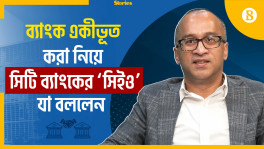India is scapegoating Muslims for the spread of the coronavirus
The pandemic has provided fresh opportunity for Hindu nationalists to beat down an already disadvantaged minority group.

That Ambreen Khan was a nurse made little difference to her attackers: She was Muslim, and for the Hindu mob in Punjab, that outweighed all other considerations. As Khan returned home from her hospital shift on April 10, half a dozen men surrounded her car, wielding iron rods and bamboo sticks. Most were neighbors—men she had known for years. Now, they were shouting slurs at her. They pulled Khan from her car, beat her, and molested her. As she begged for mercy, showing them her identity card and permission to move freely, they taunted her. "Go back to Pakistan, and do your duty there," one man yelled, according to the police report.
"I fear for my life here now," Khan said. "It doesn't feel like home. It feels like another country."
As the largest minority group in India, Muslims have long faced social, political, and economic marginalization. The gulf between Hindus and Muslims—who make up some 200 million of India's 1.3 billion citizens—has widened, particularly since the Hindu nationalist Bharatiya Janata Party (BJP) came to power under Prime Minister Narendra Modi in 2014. Attacks against Muslims have sparked repeatedly in recent years; the coronavirus is now adding fuel to the fire.
On March 24, Modi instituted a hastily organized full lockdown. For three weeks (since extended by another 19 days), Indians were ordered to remain inside. Overnight, millions of day laborers, the movers of India's informal economy, went out of work. Even before the pandemic, the Indian economy was faltering, and Modi was fast losing public trust. As the virus spreads, Muslims have become a convenient scapegoat.
"Many Hindus say Muslims are deliberately attempting to spread coronavirus to wage a holy war or jihad against the majority Hindus," said Zainab Sikander, a political commentator based in New Delhi. "Such bigotry has not only been normalized but has been encouraged through ruling party propaganda against Muslims."
At the apex of such dangerous disinformation sit politicians like Amit Malviya, who heads the BJP's information technology cell and serves as its chief propagandist. In late March, Malviya tweeted to his nearly 500,000 followers: "Delhi's dark underbelly is exploding! Last 3 months have seen an Islamic insurrection of sorts, first in the name of anti-CAA protests from Shaheen Bagh to Jamia, Jaffrabad to Seelampur. And now the illegal gathering of the radical Tablighi Jamaat at the markaz. It needs a fix!"
The latest attacks began as news emerged of an outbreak tied to a large Tablighi Jamaat gathering in March. The multinational Muslim missionary movement held a gathering in Delhi's Nizamuddin Markaz, a center of Islamic preaching and a global headquarters for missionaries all over the world. Held after Delhi issued a warning against large gatherings but without evident enforcement, the event drew about 3,000 people from a dozen countries. Since then, approximately one-third of India's 20,000 cases have been traced to the gathering. (Unsurprisingly, cases traced back to other massive gatherings, including a 10-day festival in Kerala that drew hundreds of thousands, have drawn little attention.)
India's television news channels, already notorious for spreading hatred against Muslims, were quick to attack. Anchors accused Muslim missionaries of "deliberately" spreading COVID-19, dubbing them India's "virus villains" and "human bombs." Special programs, including a special investigation, were broadcast on prime-time television news as if to establish the Muslim character of the coronavirus. Rangoli Chandel, the sister of a Bollywood star and a popular defender of the Modi government, called for the shooting of Muslims. A hospital in the northern Indian state of Uttar Pradesh said in a public advertisement that it would not admit Muslim patients unless they produced a negative test result for COVID-19. Leaders from the ruling BJP joined the chorus. A federal minister in Modi's party, Mukhtar Abbas Naqvi, said the Nizamuddin Markaz meeting was "Talibani crime" and that that kind of criminal act couldn't be overlooked or forgiven.
The recent spate of violence is just the latest cause for concern among India's Muslim minority. Last August, Modi's government unilaterally revoked the semi-autonomous status of Jammu and Kashmir, the only Muslim-majority state. Thousands of people have been jailed, and the region remains under lockdown. In India's troubled northeastern region of Assam, Modi last year introduced a controversial National Register of Citizens to identify Indian nationals among so-called foreigners from neighboring Bangladesh. The register has put some 1.9 million citizens—the majority of them Muslims who have lived there for generations but lack documentation—at the risk of becoming stateless.
Muslims have been demonized in India in the past for being sympathetic toward terrorism but the hatred against them was rarely expressed so explicitly. Today, many face discrimination in every aspect of daily life—shunned by coworkers and neighbors, pushed out of jobs or communities because of their religion. Their future looks bleak in India, and most fear speaking in public.
"It is like an abusive relationship where you strike a humiliating compromise because there is no way out," said Iqra Kilji, a Muslim poet from Madhya Pradesh. "The abuser knows you can't sever the relationship and keeps abusing."
A cascading effect of this propaganda is already being felt across the country. Some residential areas in Delhi, for instance, are now banning entry for Muslims. Lav Agarwal, a secretary in the health ministry who gives daily coronavirus updates, is trying hard to emphasize that Muslims are responsible for spreading the virus in India.
That this comes after a wave of deadly anti-Muslim violence in Delhi this year makes it all the more worrisome. Many Muslims see the latest scapegoating as part of a larger ploy by Hindu nationalists to demonize them and ultimately deny them even the basic rights guaranteed to all citizens of India under the constitution, regardless of religion.
Some warn the endgame may be even worse, with threats that amount to incitement to genocide. The Star of Mysore ran an editorial (since removed) referring to Muslims with the following advice: "An ideal solution to the problem created by bad apples is to get rid of them."
Subramanian Swamy, a BJP leader and ideologue, said in an interview with Vice that when the Muslim population is more than 30 percent, there is trouble. When the interviewer pointed out that India has 200 million Muslim residents, Swamy said he was being "kind to them." Muslims "are not in an equal category" to non-Muslims, he said.
Muslims on the receiving end of such attacks are struggling to cope. A Tablighi Jamaat member killed himself after his Hindu neighbors announced a social boycott, refusing to interact with him. In Gujarat, coronavirus patients and suspected cases at one hospital were segregated into wards depending on their faith, reportedly at the behest of the government. (The local health department denied it had ordered any such segregation.) In Karnataka, Muslim volunteers have been beaten up while distributing food among the needy. A pregnant Muslim woman recently lost her child after doctors in Rajasthan refused to operate because of her Muslim identity. "You are a Muslim, and we can't treat you here," her husband, Irfan Khan, recalled doctors telling him.
"We are Indians first, but India seems to be on the path of self-destruction in which Muslims are becoming the first casualty," Khan added.
On Sunday, finally, Modi addressed the issue. In a LinkedIn post, he wrote: "COVID-19 does not see race, religion, colour, caste, creed, language or border before striking. Our response and conduct thereafter should attach primacy to unity and brotherhood." But he has refused to tackle Islamophobia head on, instead just making passing references to equality. His statement came far too late to prevent a slew of anti-Muslim attacks—whether it will prevent the further spread of propaganda and violence remains to be seen.
Many Muslims fear that the democratic India embraced by their ancestors in 1947 is on the path to becoming a majoritarian Hindu nation, where Muslims can only expect to live as second-class citizens "A multipronged propaganda has been unleashed to create an impression that the 85 percent Hindu majority in India is under a great threat from a 15 percent Muslim minority," Kilji said.
Sameer Yasir is a journalist based in New Delhi. He has written for the New York Times, Wall Street Journal, Los Angeles Times, BBC and the Times of London, among others.
Disclaimer: This article first appeared on foreignpolicy.com, and is published by special syndication arrangement.


 Keep updated, follow The Business Standard's Google news channel
Keep updated, follow The Business Standard's Google news channel
















